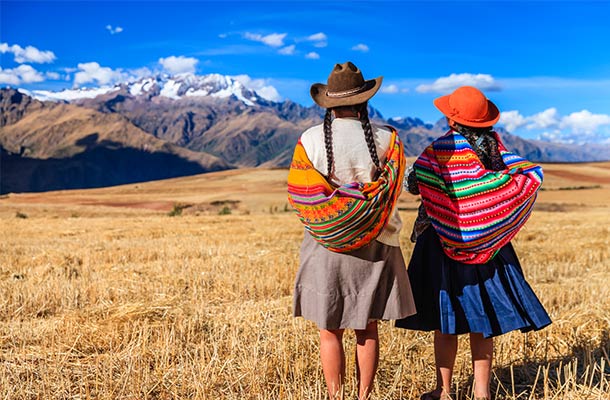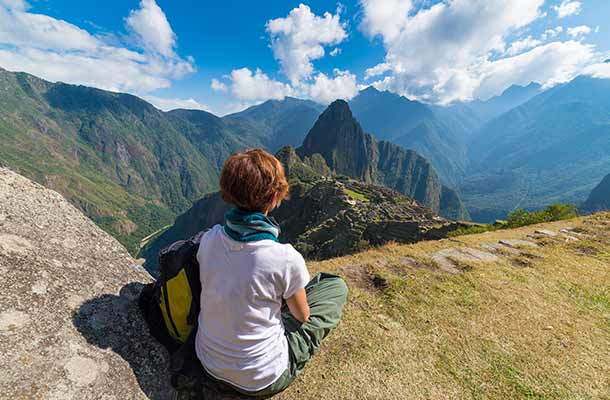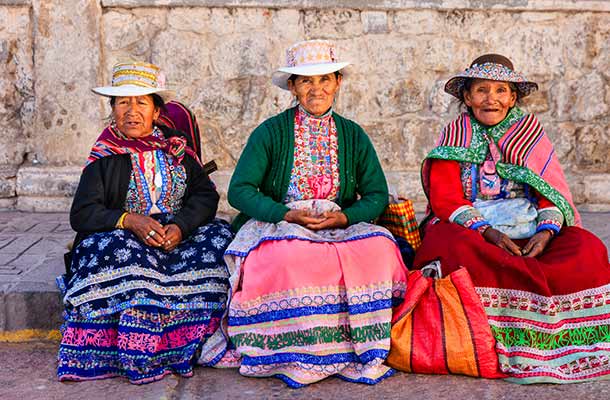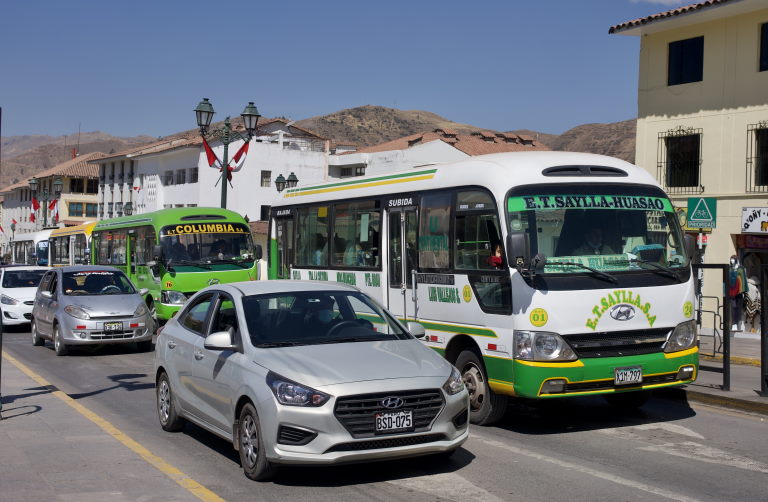Peru: Empowering Women Through Tourism
For all the negative impacts tourism is blamed for, the empowerment of women is one of the industry's most consistent and commendable positive influences. Ted Martens tells us why this is the case in Peru.
 Photo © iStock/hadynyah
Photo © iStock/hadynyah
Women and the Impact of Tourism
Women in developing countries have it pretty tough. Sometimes very tough. Often viewed as second-class citizens, commonly marginalized to very limited activities and privileges, some women struggle to earn even very basic rights. One of the biggest challenges preventing women from rising to equal status is
For all the negative impacts tourism is blamed for (environmental degradation, cultural exploitation, economic dependence, etc), the empowerment of women is one of the industry's most consistent and commendable positive influences. Granted, many of the most common jobs for women in tourism are low-skilled, low-paying positions that may actually reinforce existing gender stereotypes. But, when approached with cultural sensitivity and commitment to the community, responsible tourism can provide opportunities beyond some women's' wildest dreams.
Women's Empowerment Project in Peru
I recently visited with a phenomenal example of a women-supported tourism project in rural Peru. The Yanapana Foundation is a local NGO dedicated to supporting the communities along the Salkantay Trek through sustainable social programs and income-generating projects. While the empowerment of women is not cited as part of the organization's mission, many of its projects are focused on small business development for women-run cooperatives.
A bit of background: The Salkantay Trek is a stunning 4-6 day hike, beginning in the town of Mollepata, and culminating with a visit to Machu Picchu. With many travelers looking for an alternative to the heavily trekked and regulated Inca Trail, the Salkantay has experienced a significant boom in recent years (and having recently finished a trip along the trek, I can personally vouch that you should absolutely choose the Salkantay over the Inca trail). While traditionally trekked with tented camp accommodations, the Mountain Lodges of Peru (MLP) has pioneered a lodge-to-lodge version of the trek. Before their first lodge was even built, MLP established the Yanapana Foundation, understanding that the well-being of their guests was tied directly to the well-being of the local communities.
The Impact
Okay, so what's really happening to support women along the Salkantay? Yanapana has helped to establish a cooperative of women weavers and garment makers. Previously only making garments for family members, these women are now earning fair wages for creating clothing and blankets that are being sold to MLP guests and other trekkers on the Salkantay. Yanapana has helped to create and build a women-owned and operated a jam-making business that supplies all of MLP's lodges as well as local grocery stores. Yanapana has also worked to provide language and professional training for women along the trek to assist them in obtaining jobs at MLP lodges. Oh yeah, and then there are all the other community projects facilitated by the organization, including providing free health care to local communities, gathering clothes for children in need, cleaning up the trail, providing health services and school supplies in rural schools, and teaching sustainable farming techniques.
So this is an impressive list of projects, and surely the organization's impact is substantial. But what really moved me about the work of Yanapana was talking to the women who have been supported by its projects. To look into Maria's eyes while she tells me that her husband now treats her with respect and dignity and that she feels empowered to be contributing to the family's finances is a moving experience. And to hear from Mercedes, the Yanapana Director (also a woman), that in 3 short years, they have transformed the lives of dozens of women along the Salkantay Trek, with grand plans to expand their impact, is inspiring to say the least.
This is all possible thanks to a responsible travel company who recognizes that its success is tied directly to the success of those in the communities that support it. Whether MLP's guests are purchasing goods made by the Yanapana cooperatives or not, simply by using MLP's services, guests are supporting the empowerment of women and the well-being of local communities. As a traveler, your choices of operators or hosts truly make a difference. Do what you can to seek out providers that have a similar commitment to the people in your host communities, and if you can, give a little extra to support their work. Your choice may have a bigger impact than you realize.
Want to know more about Peru? Check out our podcast. We chat about alternative treks to Machu Picchu, how Peru is the original home of surfing, and look at what vaccinations do you need when traveling to South America.
Related articles
Simple and flexible travel insurance
You can buy at home or while traveling, and claim online from anywhere in the world. With 150+ adventure activities covered and 24/7 emergency assistance.
Get a quote


No Comments